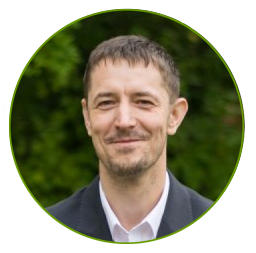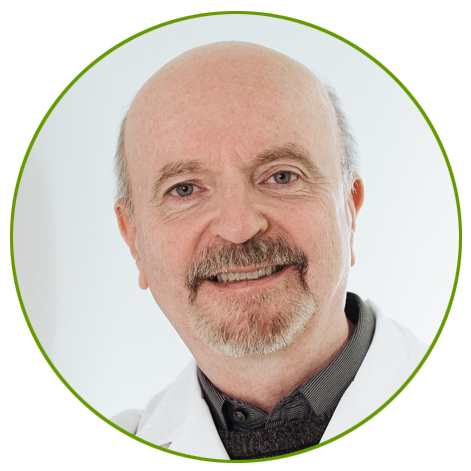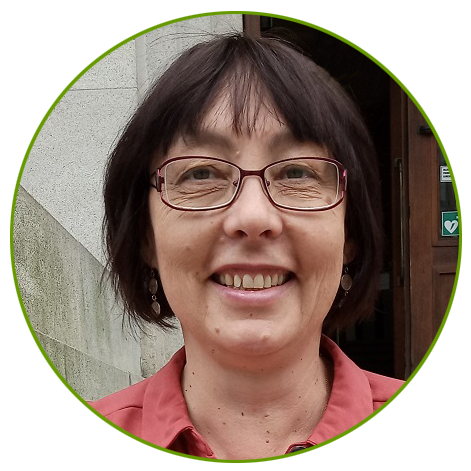
Invited speakers

Tomáš Cajthaml
Director Institute for Environmental Studies,
Prague, Czech Republic
Title:
Per- and polyfluoroalkyl substances - eternal chemicals; is there a forever solution

Bin Cao
Nanyang Technological University, Singapore
Title:
Biofilm Engineering for Environmental Sustainability

Nicolas Kalogerakis
Technical University of Crete, Greece
Title:
Biodegradation of plastics and microplastics in agricultural soils

Víctor de Lorenzo
Centro Nacional de Biotecnologia, Spain
Title:
Environmental bacteria as authentic (nonmetaphorical) cell factories

Petra Patakova
University of Chemistry and Technology Prague, Czech Republic
Title:
Biotechnological valorization of animal and/or plant waste

Giulio Zanaroli
Università di Bologna, Italy
Title:
Challenges in the intensification of organohalide respiration processes in marine)

Tomáš Cajthaml
Presentation title:
Per- and polyfluoroalkyl substances - eternal chemicals; is there a forever solution
Affiliation:
Director Institute for Environmental Studies,
Prague, Czech Republic
Website: www.natur.cuni.cz/fakulta/zivotni-prostredi/lide/zamestnanci/tomas-cajthaml
Short bio:
Tomáš Cajthaml is the director of the Institute for the Environment, Faculty Science, Charles University and works at the Institute of Microbiology of the Academy of Sciences of the Czech Republic. He deals with toxicology, microbial biodegradation and analysis of organic pollutants and their fate in the environment and participates in the development of decontamination methods, especially those using microorganisms. He is the author and co-author of more than 250 publications in international scientific journals, several book chapters and patents. He is among the top two percent of the most cited scientists in the field in the world. Currently, he is also focusing on the fate and toxicity of PFAS in the environment and microplastics.

Nicolas Kalogerakis
Presentation title:
Biodegradation of plastics and microplastics in agricultural soils
Affiliation:
Technical University of Crete, School of Chemical and Environmental Engineering, Chania, Greece
Website: www.chenveng.tuc.gr/en/personnel/faculty/nicolas-kalogerakis/
Short bio:
Nicolas Kalogerakis is Professor Emeritus of biochemical engineering at TU-Crete where he served twice as Department Head and as Vice-President of the University Council. Prior to that he was a Professor at SUNY-Buffalo (USA) and at the University of Calgary (Canada). In 1997 he returned to Greece as a founding member of the Environmental Engineering Dept. His area of expertise includes environmental biotechnology focusing on bioremediation and phytoremediation technologies. Ongoing funded research activities include: (i) Combating hydrocarbon releases in deep sea environments (>200 bar), (ii) Bioremediation of contaminated marine sediments, (iii) Biodegradation of plastics and microplastics in the marine environment and in agricultural soils and (iv) Environmental applications of nanobubble technologies. Currently his group is participating in 2 EU funded research projects, and he is the coordinator of the ERA-MIN2 project nanoBT.

Víctor de Lorenzo
Presentation title:
Environmental bacteria as authentic (nonmetaphorical) cell factories
Affiliation:
Systems Biology Department Centro Nacional de Biotecnologia,
CSIC C/ Darwin, 3 (Campus de Cantoblanco UAM)
Madrid 28049, Spain.
Email: vdlorenzo@cnb.csic.es
Website: vdl-lab.com
Short bio:
Víctor de Lorenzo (Madrid, 1957) is a Chemist by training and he holds a position of Research Professor in the Spanish National Research Council (CSIC), where he currently heads the Laboratory of Environmental Synthetic Biology at the National Center for Biotechnology. He specializes in Molecular Biology and Biotechnology of soil microorganisms (particularly Pseudomonas putida) as agents for the decontamination of sites damaged by industrial emissions at various application scales—from local to global. At present, his work explores applications of Molecular Bioengineering to Environmental Biotechnology, with an emphasis on development of genetic tools for programming live bioremediation agents.

Petra Patakova
Presentation title:
Biotechnological valorization of animal and/or plant waste
Affiliation:
University of Chemistry and Technology Prague, Department of Biotechnology, Prague, Czech Republic
Website: https://ub.vscht.cz/department/staff/patakova
Short bio:
Petra Patakova is full professor of biotechnology and Head of the Department of Biotechnology at the University of Chemistry and Technology in Prague. Her main research interests include physiology and genetics of solventogenic clostridia, valorization of different types of waste using biotechnological processes and biosynthesis and biological activity of Monascus fungi secondary metabolites. She was a chairperson of the Faculty of Food and Biochemical Technology senate in 2014-2019 and now she is a member of the Scientific Board of the Faculty. She is the author or co-author of 110 results gathered in Web of Science databases which are to be found under three surnames Patakova (now), Patakova-Juzlova (in transient time) and Juzlova (maiden name). She is active not only in basic research but holds 4 patents too. She collaborates with scientists from different countries in the field of solventogenic clostridia or Monascus research. She presented her work on many scientific conferences in form of oral contributions or posters, was the head of the Scientific Committee of the BioTech 2020 conference and is permanent member of the Scientific board of International Conference on Chemical Technology (ICCT) series of conferences where she serves as a chairman of Biotechnology and Biorefinery section.

Giulio Zanaroli
Presentation title:
Challenges in the intensification of organohalide respiration processes in marine
Affiliation:
Associate Professor at the department of Civil, Chemical, Environmental and Materials Engineering of the University of
Bologna, Italy
Website: www.unibo.it/sitoweb/giulio.zanaroli/en
Short bio:
Giulio Zanaroli is Associate Professor at the department of Civil, Chemical, Environmental and Materials Engineering of the University of Bologna, Italy. His research interests focus on microbial communities degrading organic pollutants and bioplastics and their exploitation in the development and optimization of bioremediation processes, and on enzymatic degradation of biopolymers and the development of enzymatic processes for their recycling and upcycling. He is currently the coordinator of the Horizon Europe project Nymphe and is participating in 3 EU funded research projects on these research topics.

Bin Cao
Affiliation:
School of Civil and Environmental Engineering and Singapore Centre for Environmental Life Sciences Engineering, Nanyang Technological University, Singapore
Website: www.ntu.edu.sg
Short bio:
Dr. Cao Bin is an Associate Professor in the School of Civil and Environmental Engineering and a Principal Investigator in the Singapore Centre for Environmental Life Sciences Engineering (SCELSE), Nanyang Technological University, Singapore. His research efforts are focused on understanding biofilm-mediated environmental processes and harnessing the power of microbial biofilms to address environmental issues (www.bcaolab.org). Specifically, his research team uses environmental engineering, (bio)chemical engineering, microbiology, and molecular/synthetic biology tools and develop new tools to (i) understand biofilm-mediated environmental processes and biofilm-contaminant interactions, (ii) engineer microbial biofilms with defined structural and functional characteristics, and (iii) develop biofilm-enabled approaches for environmental biotechnological applications. Ongoing projects in his group include biofilms as a source of extracellular DNA in natural and engineering environments; biofilm-plastic interaction in coastal and marine environments; engineering controllable biofilms for biotechnological applications.
